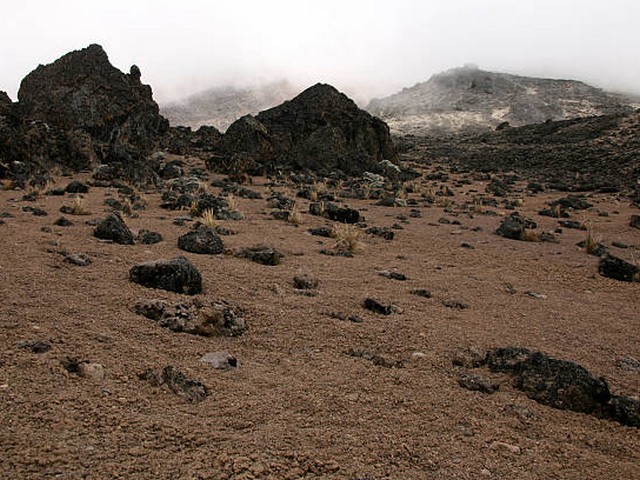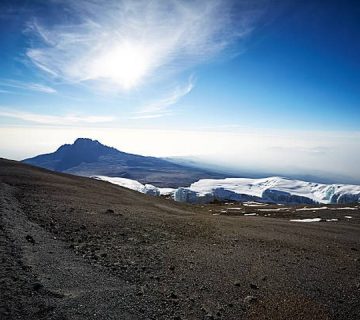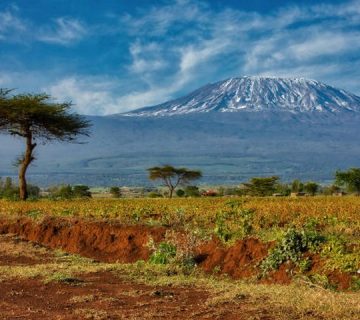Kilimanjaro Trekking Nutrition And Hydration Tips: Fueling Your Journey to the Roof of Africa
Embarking on the journey to ascend Mount Kilimanjaro is entering into a story of epic proportions, where each step leads you closer not only to the summit but to discovering your inner strength and stamina. As the premier guide service, Kilimanjaro Centre for Trekking and Ecotourism (KCTE), we know that reaching the peak is a blend of mental grit and physical readiness. One of the core pillars of physical readiness? Nutrition and hydration.
When trekking up the world’s tallest free-standing mountain, every morsel of food and every drop of water counts. Nutrition and hydration can dramatically influence your body’s ability to cope with altitude and exertion. Here, we share expert tips on how to keep your body fueled and finely-tuned for the adventure of a lifetime.
Understanding the Basics of High-Altitude Nutrition
The Right Diet for the Climb
Your body’s nutritional demands increase significantly when trekking at high altitudes. The key? A balance of macronutrients.
- Carbohydrates: Your main source of energy. At higher elevations, your body burns carbs much faster than at sea level. Include plenty of whole grains, fruits, and vegetables in your meals.
- Proteins: Essential for muscle repair and recovery. As you climb, opt for easily digestible proteins like poultry, fish, eggs, and legumes.
- Fats: High-density energy sources. Fats are vital, especially for longer treks. Nuts, seeds, and avocados are great sources.
Micronutrients That Matter
Altitude can affect the body’s stores of certain vitamins and minerals. Iron, which helps in oxygen transport, is crucial. Magnesium, potassium, and calcium play significant roles in muscle function and preventing cramps.
Hydration: The Lifeline of Your Trek
Hydration on Kilimanjaro is more than just drinking water. Altitude can lead to a deceptive decrease in thirst, yet your body loses water rapidly through respiration and sweat.
- Water Intake: Aim to drink at least 3-4 liters of water daily. Begin hydrating weeks before your climb to ensure you’re well-prepared.
- Balancing Electrolytes: Sweating leads to loss of essential salts. Balance your electrolyte levels with supplements or electrolyte-enhanced drinks.
Tips for Effective Hydration
- Carry a water bottle or hydration bladder that’s easy to access.
- Consume small amounts of water frequently, rather than large amounts irregularly.
- Monitor the color of your urine. Light yellow indicates proper hydration.
Timing Your Nutrition and Hydration
Before the Trek
Two to three weeks before your climb, start adjusting your diet. Increase your intake of complex carbohydrates, lean proteins, and hydrate more intensively.
During the Trek
Keep energy levels steady by eating small, frequent meals and snacks. Don’t skip meals, even if you’re not hungry. Your body needs the energy to adapt to the changing altitudes.
What to Eat: Kilimanjaro Trekking Menu Ideas
Breakfast
Opt for porridge, fruits, eggs, and whole-grain bread. A hearty breakfast sets a positive tone for the day’s trek.
Lunch and Dinner
Include a mix of carbohydrates (rice, pasta, potatoes), proteins (stewed chicken, fish, beans), and vegetables. Soups are excellent for hydration and warmth.
Snacks
Energy bars, nuts, dried fruits, and chocolate provide quick, portable energy. They are perfect for snacking on the go.
Avoiding Common Dietary Mistakes
- Overloading on unfamiliar foods: Stick to foods that you know agree with your stomach.
- Ignoring hunger cues: High altitude might suppress your appetite, but you must eat to maintain energy.
- Dehydration: Never wait until you’re thirsty to drink water.
Practical Tips for Managing Food and Drink on the Mountain
- Choose the right gear: Invest in quality food containers and water storage that withstand the mountain’s harsh conditions.
- Plan with professionals: At KCTE, our expert guides help plan your meals and hydration strategy tailored to your trekking schedule.
Why Choose KCTE for Your Kilimanjaro Adventure?
The right nutrition and hydration strategy could very well be the linchpin of your Kilimanjaro success story. At Kilimanjaro Centre for Trekking and Ecotourism, we not only understand this but also integrate it into our meticulously planned treks, ensuring you have the optimum support to reach Uhuru Peak. Our seasoned guides, who are experts in high-altitude trekking, will be with you every step of the way, making sure you are well-fed, hydrated, and ready for the challenges ahead.
FAQs on Kilimanjaro Trekking Nutrition and Hydration
What should I eat the morning of my summit attempt?
Opt for a carbohydrate-rich breakfast like oatmeal or porridge, which provides long-lasting energy.
How can I ensure I’m properly hydrated?
Drink regularly, even if not thirsty. Use water flavorings or electrolyte supplements if plain water becomes unpalatable.
Can I bring my own snacks?
Absolutely! While we provide all meals, you’re welcome to bring favorite snacks that comfort and energize you.
Conclusion: Fuel Your Climb to Success
As you set your sights on conquering Kilimanjaro, remember that the journey is a test of both endurance and strategy. With the right nutrition and hydration plan, you’re not just feeding your body; you’re fueling your dreams.
Ready to embark on your Kilimanjaro adventure with the best? Book your climb with Kilimanjaro Centre for Trekking and Ecotourism (KCTE) today, and let’s turn your dreams into reality.




